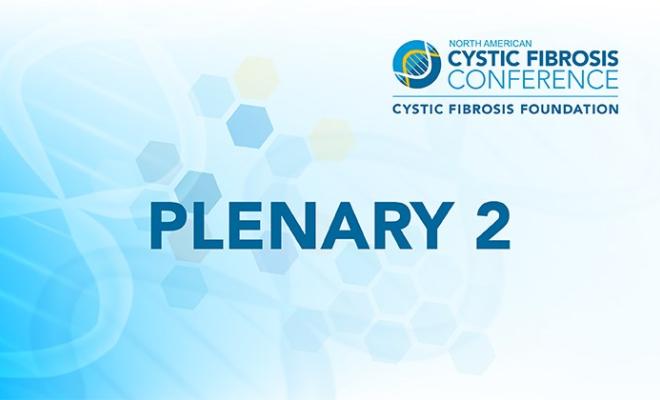I was diagnosed with cystic fibrosis at birth. As I grew up, curiosity about my own condition sparked an interest in biology. After taking advanced science classes in high school, I decided to study biology in college. During my senior year, I took a class on public health and women that prompted me to ask why females with CF tend to have worse outcomes than their male counterparts. It seemed that this disparity was not examined, only acknowledged.
Around this same time, I felt that the entire package of sexual, reproductive, and general women's health care was not addressed by my care team. I believe this may be due to the mischaracterization of cystic fibrosis as a childhood disease -- a perspective that flies in the face of the reality that most people with CF have gotten through puberty and have the same messy, complicated sex lives and reproductive health care needs as everybody else.
CF does not erase our sexual and reproductive health needs; it complicates them.
My experience is that some CF teams are rarely comfortable with topics such as birth control and pregnancy -- and primary care doctors and ob-gyns are terrified to wade into the care of women with a chronic disease as complex as CF. Currently, there are questions about how modulators like elexacaftor/tezacaftor/ivacaftor (Trikafta®) affect fertility. As someone with low lung function, I am neither at a place in my life where I want or could care for a child, nor do I want to risk my life to have a child of my own. I need effective birth control as much as -- or more than -- any other person who is not ready for kids or who doesn't want kids, because my health would be put at risk with pregnancy.
I feel strongly that we need a care model that includes reproductive health. I am also an advocate for CF research and epidemiology specific to women's health. These are some of the many reasons I applied for my role as a community member on the Women's Health Research Working Group, which is chaired by Jennifer L. Taylor-Cousar, MD, MSCS, ATSF. Recently, I spoke with Dr. Taylor-Cousar about the reproductive health of people with CF. She is also co-director of the Adult CF Program and director of the CF Therapeutics Development Network Center at National Jewish Health in Denver.
Maddie: I have heard a few stories about women with CF who have been taking Trikafta and were surprised to become pregnant -- with either great joy or great concern. Others, like myself, have experienced changes in their menstrual cycles and -- in some cases -- a thinning of cervical mucus. I think many people with CF, CF partners, and family members are wondering, does Trikafta affect fertility?
Dr. Taylor-Cousar: I have heard those stories, too, from clinicians and there are multiple reports in the medical literature of women who previously were having fertility problems and inadvertently or intentionally became pregnant after starting CFTR modulators, so there does seem to be evidence of increased fertility.1,2 Researchers are currently doing a study to determine exactly what changes in the cervical mucus occur after starting Trikafta. Women with CF are able to get pregnant without taking a modulator, but their fertility can be affected by thick, dehydrated, pH-imbalanced cervical mucus and poor nutrition.3 We think that taking a highly effective modulator, such as Trikafta, may thin the mucus and make the mucus less acidic so that it is easier for sperm to penetrate the egg.1 In addition, a highly effective modulator seems to improve general health and nutrition, which also can positively impact fertility for women with CF.
Maddie: Have you seen an increase in fertility among people taking other modulators, besides Trikafta?
Dr. Taylor-Cousar: We had some evidence of increased pregnancies with ivacaftor (Kalydeco®).1 About 2 percent of women with CF became pregnant during clinical trials for Kalydeco.2 After the clinical trials, the number of pregnancies reported to the Cystic Fibrosis Foundation Patient Registry increased among women eligible for Kalydeco.4 In women with CF who have two copies of the F508del mutation, we also saw a substantial increase in the number of pregnancies after the approvals of lumacaftor/ivacaftor (Orkambi®) and tezacaftor/ivacaftor (Symdeko)®.5 Based on that experience, we are expecting a Trikafta baby boom this year.
Maddie: What about men with CF? Can modulators affect their fertility?
Dr. Taylor-Cousar: No, we don't believe that modulators given at normal doses decrease or increase the fertility of men with CF.6-9 Unfortunately, 97-98 percent of men with CF are infertile because of an absence of the sperm ducts, known as congenital bilateral absence of the vas deferens.3,10 Because of this duct absence, the sperm never make it into the semen, making it impossible for them to reach and fertilize an egg through intercourse. There is no evidence that suggests that modulators can lead to duct formation in men who were born without them.11 Therefore, although modulators may increase ejaculate volume because of their effect on the CFTR channels in the prostate, there is still no sperm in it.
The good news is that modulators given at normal doses do not negatively affect sperm, and we think that fetal exposure during intercourse is likely to be negligible,6,12 so men can still take advantage of assisted reproductive technology if they want to become fathers, and there are a number of men on CFTR modulators who have already done so.
Maddie: Would you say that it's typically difficult for women with CF to get pregnant if they're not taking modulators?
Dr. Taylor-Cousar: Actually, cystic fibrosis can cause up to a 35 percent subfertility rate, which means that it is more difficult for some women with CF to have a baby without reproductive assistance, especially those who are older the first time they try to get pregnant and those who are pancreatic insufficient.13 However, women with CF definitely need to take some form of birth control to prevent pregnancy. According to studies, between 25 percent and 50 percent of pregnancies in women with CF are unplanned, which is way too high. Many women with CF mistakenly believe they can't get pregnant and do not take advantage of available contraceptives. In a survey of 150 women with CF aged 18-50 years old reported in 2020, 24 percent of women indicated that they were not taking any form of contraception.15
Maddie: Is there a certain method of birth control that is most effective for women with CF? When I ask my CF team about highly effective contraceptive options like birth control pills or hormonal devices, they always tell me to see a women's health specialist. When I see the specialist, they are unfamiliar with CF and my medications. I carefully read package inserts6-9 for interactions between routine medications, like antibiotics and hormonal contraceptive methods, usually concluding that barrier contraceptives, like condoms, are my only option. Does Trikafta decrease the effectiveness of the pill or other hormonal contraceptive device?
Dr. Taylor-Cousar: No. Of the approved modulators, only Orkambi® interacts with hormonal contraception.6-9 Women should use an alternate form of birth control while using Orkambi.
Maddie: Women with CF who want to get pregnant need guidance on whether they should stop modulator therapy while they are trying to conceive and when they become pregnant. Discontinuing a modulator may adversely affect the woman's health, but it doesn't seem clear whether continuing the modulator may affect the baby's health. Can women take modulators while they are trying to conceive and during pregnancy?
Dr. Taylor-Cousar: The question of the impact of modulators on the unborn or breastfeeding baby is something that we need to study further.6-9 Data in animals suggests no harm at normal human doses, however, there are no clinical trials of the use of modulators in pregnant women.6-9 Thus far, case studies and a large series of cases have shown that there does not seem to be a negative effect on the baby from modulators.2,16-19 Importantly, there seems to be an effect for some women when they stop taking modulators while pregnant. Nine pregnant women who stopped taking modulators experienced a clinical decline, prompting them to resume therapy.18 We didn't have any reports of complications in infants exposed to modulators in utero that were thought to be caused by the modulator.18
Maddie: Do modulators have any other effects on women's health?
Dr. Taylor-Cousar: Interestingly, a recent report from the long-term study of ivacaftor in people with Kalydeco-eligible mutations, the GOAL study, showed that women ages 18 and older had a higher number of exacerbations at the start of the study, but ivacaftor-treated females with CF had a greater reduction in pulmonary exacerbations than males with CF, and a greater reduction in sweat chloride in response to ivacaftor than males.20 We don't know at this time if these findings will be observed with Trikafta, but we are conducting a long-term study, called PROMISE, which will examine how Trikafta affects overall health in people with CF.
Maddie: Thank you, Jennifer. I appreciate having this candid chat with you. If people want to hear more about the work being done by the Women's Health Research Working Group, where could they find that information?
Dr. Taylor-Cousar: Updates on the progress of our work will be provided on our web page.
References:
- Jones GH, Walshaw MJ. Potential impact on fertility of new systemic therapies for cystic fibrosis. Paediatr Respir Rev. 2015;16 Suppl 1:25-27.
- Ladores S, Kazmerski TM, Rowe SM. A Case Report of Pregnancy During Use of Targeted Therapeutics for Cystic Fibrosis. J Obstet Gynecol Neonatal Nurs. 2017;46(1):72-77.
- Tizzano EF, Silver MM, Chitayat D, Benichou JC, Buchwald M. Differential cellular expression of cystic fibrosis transmembrane regulator in human reproductive tissues. Clues for the infertility in patients with cystic fibrosis. Am J Pathol. 1994;144(5):906-914.
- Heltshe SL, Godfrey EM, Josephy T, Aitken ML, Taylor-Cousar JL. Pregnancy among cystic fibrosis women in the era of CFTR modulators. J Cyst Fibros. 2017;16(6):687-694.
- Registry CFFP. 2018 Annual Data Report https://www.cff.org/Research/Researcher-Resources/Patient-Registry/2018-Patient-Registry-Annual-Data-Report.pdf.
- Ivacaftor (Kalydeco), United States Prescribing Information.
- Lumacaftor/ivacaftor (Orkambi) United States Prescribing Information.
- Tezacaftor/ivacaftor (Symdeko) United States Prescribing Information.
- Elexacaftor/tezacaftor/ivacaftor (Trikafta) United States Prescribing Information.
- Kaplan E, Shwachman H, Perlmutter AD, Rule A, Khaw KT, Holsclaw DS. Reproductive failure in males with cystic fibrosis. N Engl J Med. 1968;279(2):65-69.
- Sun T, Sun Z, Jiang Y, et al. Transcriptomic Responses to Ivacaftor and Prediction of Ivacaftor Clinical Responsiveness. Am J Respir Cell Mol Biol. 2019;61(5):643-652.
- Scialli AR, Bailey G, Beyer BK, et al. Reprint of "Potential seminal transport of pharmaceuticals to the conceptus". Reprod Toxicol. 2016;59:22-30.
- Shteinberg M, Lulu AB, Downey DG, et al. Failure to conceive in women with CF is associated with pancreatic insufficiency and advancing age. J Cyst Fibros. 2019;18(4):525-529.
- Roe AH, Traxler SA, Hadjiliadis D, Sammel MD, Schreiber CA. Contraceptive choices and preferences in a cohort of women with cystic fibrosis. Respir Med. 2016;121:1-3.
- Godfrey EM, Mody S, Schwartz MR, et al. Contraceptive use among women with cystic fibrosis: A pilot study linking reproductive health questions to the Cystic Fibrosis Foundation National Patient Registry. Contraception. 2020;101(6):420-426.
- Kaminski R, Nazareth D. A successful uncomplicated CF pregnancy while remaining on Ivacaftor. J Cyst Fibros. 2016;15(1):133-134.
- Mainz JG, Michl RK, Beiersdorf N, et al. Successful Pregnancy of a Patient with Cystic Fibrosis Genotype F508del/ F508del and Progressed Pulmonary Destruction on lumacaftor/ivacaftor. Klin Padiatr. 2019;231(5):271-273.
- Nash EF, Middleton PG, Taylor-Cousar JL. Outcomes of pregnancy in women with cystic fibrosis (CF) taking CFTR modulators - an international survey. J Cyst Fibros. 2020.
- Trimble A, McKinzie C, Terrell M, Stringer E, Esther CR, Jr. Measured fetal and neonatal exposure to Lumacaftor and Ivacaftor during pregnancy and while breastfeeding. J Cyst Fibros. 2018;17(6):779-782.
- Secunda KE, Guimbellot JS, Jovanovic B, et al. Females with Cystic Fibrosis Demonstrate a Differential Response Profile to Ivacaftor Compared with Males. Am J Respir Crit Care Med. 2020;201(8):996-998.
Interested in sharing your story? The CF Community Blog wants to hear from you.





